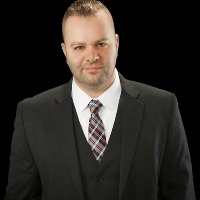Betterton Misdemeanor Lawyer, Maryland
Sponsored Law Firm
-
 x
x

Click For More Info:
-
Cromwell & Associates, LLC
7305 Baltimore Ave Suite 307 College Park, MD 20740» view mapEstate, Tax, and Real Estate Law Where Every Client Matters
At Cromwell & Associates, our firm is large enough to handle your diverse needs, but small enough to give you the personal attention you deserve.
240-667-7234
Charles Waechter
✓ VERIFIEDCriminal, DUI-DWI, Felony, Misdemeanor, Internet
Annapolis Criminal Defense Law Firm If you face criminal charges, an experienced and respected defense lawyer can help protect your rights, evaluat... (more)
FREE CONSULTATION
CONTACTJason A. Kerpelman
Traffic, Misdemeanor, DUI-DWI, Criminal
Status: In Good Standing Licensed: 26 Years
FREE CONSULTATION
CONTACT Stephen Cromwell College Park, MD
Stephen Cromwell College Park, MD AboutCromwell & Associates, LLC
AboutCromwell & Associates, LLC


